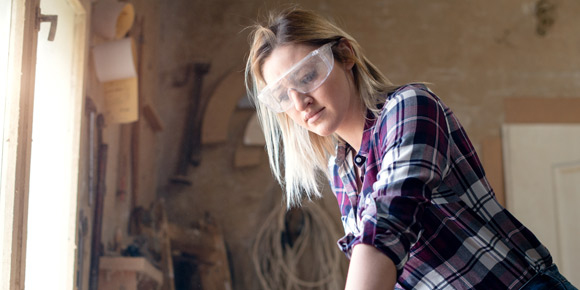By Todd Lewys
So, you’re thinking of selling your home.
Not right away, you muse, but maybe two or three years from now — after you’ve added value to it by updating key areas.
Question is, which areas are worth spending money on, and which aren’t? And how much money should you spend – a little, or a lot?
Good questions all, says veteran renovation specialist Roger Beaulieu.
“Before you do anything inside, you need to examine how your home looks outside,” he says. “In order to get people in the door to go through your home, it has to have the curb appeal required to draw them inside.”
That means taking care of all the little details that combine to create curb appeal.
“Start working on the landscaping – how the hedges, shrubs and trees are trimmed, how the grass is cut. Make sure your front door looks fresh and inviting, and that windows are clean. Those are details that will help get people through your front door once you put your home up for sale.”
Fellow renovation specialist Shane Cucheran concurs.
“If your home has wooden siding, put on some high-quality paint that will maintain a fresh look for several years,” he advises. “Clad or paint tired window sills, and even pay attention to your front light.”
Why’s that?
Simple, says Cucheran.
“People will be coming to view your home at night, so you want its front entrance — and exterior — to be well-lit. You want to create a welcoming look that will invite people inside no matter whether it’s daytime or nighttime. Putting in a little elbow grease and attention to detail can really pay off.”
After de-cluttering your home — both renovators say more is less when it comes to presenting a home in its best light — you can then get on with the task of upgrading your home’s interior.
Some of the best upgrades are the simplest (and cheapest) ones, adds Cucheran.
“Just make sure things like doors, light switches and lights are working well — and make sure they stay in good working order. When time comes to sell your home, people will begin to wonder about what else might be wrong with your home if those simple things aren’t working properly.”
Beaulieu says any subtle — but significant — upgrades should be communicated to your Realtor prior to the start of showings.
“If you’ve put in triple pane windows or upgraded insulation recently, you need to let your agent know about those upgrades. Knowing about those upgrades will help them sell your home, as newer windows and newer insulation mean there’s two less things the new owners might have to do.”
Then, there are the upgrades that do — and don’t add value to a home.
“If you’re not planning on living in your home for several years before selling, don’t spend money on replacing a driveway or sidewalk,” Cucheran says. “Concrete is terribly expensive, so you’ll never make your money back. If you’re painting, paint with neutral colours. Colours that are too over the top can kill a sale.”
While kitchen and bathroom renovations definitely increase a home’s value — simple upgrades such as a tasteful tile backsplash, stainless hood fan or new vanity can work wonders — they needn’t be too elaborate, adds Beaulieu.
“Don’t put in top-of-the-line fixtures or finishes. Do the renovations in a cost-effective manner with good quality products — don’t go over the top. If you go too high-end, you could end up pricing your home out of your neighbourhood. You don’t want it to be the highest-priced home in the area. You simply want it to be clean, well-presented and nicely updated in key areas. That’s what adds value, and helps sell a home.”
Top Tips on Adding Value to Your Home
1. Start updating your home well in advance of selling it.
2. Continually work at endowing your home with curb appeal. The little details count.
3. Work at keeping your home clutter-free. It will pay off when it comes time to sell.
4. Do invest in modest, tasteful updates to key spaces.
5. Don’t spend money on costly improvements to sidewalks, driveways & fences just before selling.
6. Don’t go over the top on upgrades. Less is more.



